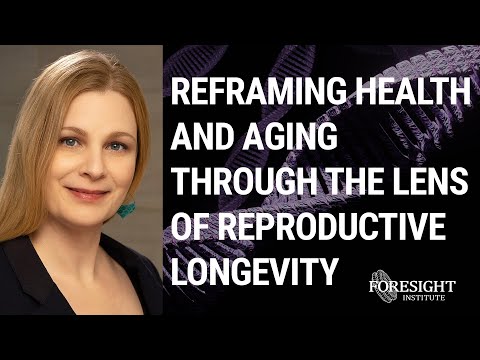Melatonin doesn’t help me to sleep at all. Tried it many times and it doesn’t work. Glycine though helps much. Usually I have 7 h of sleep which is enough for me. I’m 67.
At this week’s Aging Research and Drug Discovery Conference:
@LaraPo to be honest I don’t think it does that much for me, it’s the HRT that really helps me - but my doctor reckons its good for me so I keep taking it.
lucky us(![]()
I was perfectly healthy before menopause. Slept like a baby every night.
Columbia University researcher Yousin Sun is leading the Rapamycin human clinical trial focused on extending healthy fertility (by slowing ovarian aging) in women.
I asked longevity physician Amy Killen the following question “Is there any qualified guesses regarding off-label rapamycin dosing for menopause prevention?” This is the answer I got. Thought it could be interesting to share her answer also here.
NR treatment not only restored MII oocyte quality but also enhanced early embryonic development potential of postovulatory oocytes via alleviating mitochondrial dysfunction and maintaining normal spindle/chromosome structure. Also, treatment with NR decreased the ROS levels and reduced DNA damage and apoptosis in postovulatory oocytes. Taken together, our findings indicated that NR supplementation increases the oocyte quality and early embryonic development potential in post-ovulatory oocytes which could potentially increase the successful rate in ART.
A new project that is under consideration by VitaDOA:
MenoAge - A glycomics-based blood biomarker for female aging
A Glycomics based test for detection of perimenopause and menopause transition to enable timely access to therapy
Summary
MenoAge is a perimenopause diagnostic, which is an accurate, rapidly deployable, and cost-effective. It assesses the long-term impact of common therapeutic interventions for management of menopause or of premature ovarian insufficiency impacting women´s health and longevity. Early detection of perimenopause will lead to prompt, personalized treatment, thus preventing and alleviating (peri)menopausal symptoms associated with aging and improving future health by reducing the risk of age-related diseases and mortality.
More details on project:
Company Website:
Note: Matt Kaeberlein touches upon rapamycin / mtor pathway and ovarian aging in this new presentation on the current state of the science around Rapamycin.
An interesting comment Matt makes related to ovarian aging was he was at a recent conference on reproductive aging and there were 3 or 4 presentations on how mTOR was involved in ovarian aging. He notes that he saw a presentation where:
“they had remarkable pictures with old mice and atrophied ovaries, and then you look at an old mouse that had been treated with rapamycin and the ovaries look like young ovaries from a young mouse.”
I’ve positioned the video to the exact spot where reversing ovarian aging / function is discussed, below:
Note: Following is the entire Agenda for the FASEB Reproductive Aging Conference that Matt Kaeberlein was talking about in the above video:
This is very cool but also a little confusing. My understanding is that, unlike humans and a few whale species, most mammals don’t actually go through menopause. Meaning, most mammals (including mice) don’t stop making key hormones like estradiol midway through life. So, I’m curious whether this mouse model of ovarian aging is similar to the human model in that we actually run out of eggs (follicles), which is what causes menopause. So, if there are no more follicles to be had, one would think that even something as great as rapamycin wouldn’t be able to “turn back time” by creating more follicles in humans.
A point about why slowing ovarian aging (which rapamycin seems to do) is important for women in a broader context:
@RapAdmin Thanks for sharing these articles. Interesting to see the research that keeps coming out. And encouraging as well. I have been taking rapamycin for about 10 weeks so far and have noticed that my cycle length has increased by about 2 days the last two months - definitely a good thing for me. Will be interesting to see how the trend continues.
I have covered the recent Longevity Summit conference here, and the presentation by Jennifer Garrison and others related to female reproductive health.
See Here: The Longevity Summit, News & Update - #13 by RapAdmin
Related:
A new organization focused on funding research into improving female reproductive longevity and health:
mTORC1/2 inhibition preserves ovarian function and fertility during genotoxic chemotherapy
https://www.ncbi.nlm.nih.gov/pmc/articles/PMC5373380/


